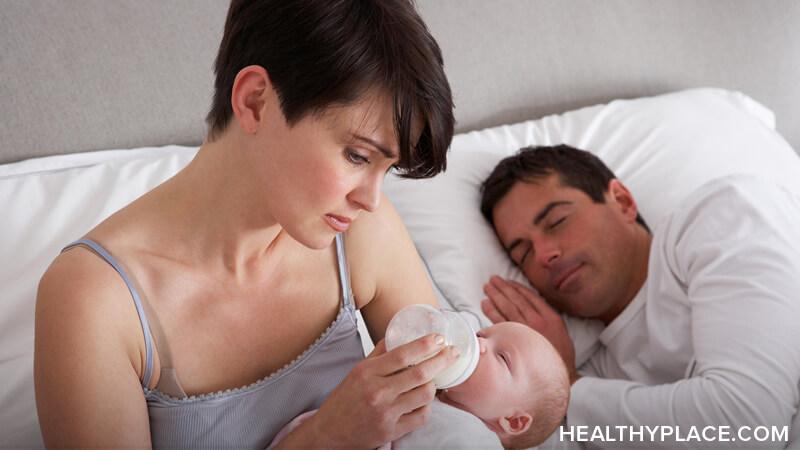Do I Have the Baby Blues or Postpartum Depression?

How do you know if it's the "baby blues" or postpartum depression? Learn how to tell the difference and what to do if you think it is postpartum depression.
Pregnancy and childbirth can change your body and mind in unexpected ways. Processing those changes while learning how to care for a newborn can be overwhelming. You may feel exhausted or experience mood swings as you deal with diapers and nursing, and a lack of sleep.
I remember sitting on the couch in an unflattering nightgown a week after giving birth. I was looking at my swollen legs while trying (unsuccessfully) to nurse my daughter and thinking, "I don't even feel like a human anymore!"
Fortunately, that feeling passed. Other emotions, however, lingered. Both my babies were good sleepers, but I still felt exhausted all the time. I would get angry without explanation. I had a sense of hopelessness. I thought I simply had the "baby blues," but I soon realized it was something else.
The Difference Between 'Baby Blues' and Postpartum Depression
According to the National Institute of Mental Health:
"The 'baby blues' is a term used to describe mild mood changes and feelings of worry, unhappiness, and exhaustion that many women sometimes experience in the first two weeks after having a baby. Babies require round-the-clock care, so it's normal for mothers to feel tired or overwhelmed sometimes. If mood changes and feelings of anxiety or unhappiness are severe, or if they last longer than two weeks, a woman may have postpartum depression. Women with postpartum depression generally will not feel better unless they receive treatment."1
Essentially, the baby blues will go away on their own. Postpartum depression will not. While there may be an overlap in symptoms, they are separate conditions. Another important note about postpartum depression: It's not your fault. You didn't do anything to cause it.
Also from the National Institute of Mental Health:
"Perinatal [immediatetly before and after birth] depression is a real medical illness and can affect any mother-- regardless of age, race, income, culture, or education. Women are not to blame or at fault for having perinatal depression: it is not brought on by anything a mother has or has not done."1
I blamed myself for my postpartum depression as if I should have somehow prevented it. That didn't help me get better; it only hindered my progress. Letting go of that blame and guilt is an important part of moving forward.
Seeking Treatment for Postpartum Depression
It can be scary to seek treatment. You constantly question yourself. What if I don't really have postpartum depression? If I do have it, will I suffer from it forever? Will I have to take depression medication for the rest of my life? What if I can't get better?
These questions can hold you back from getting help. Don't let them. It took me several months before seeking treatment for postpartum depression. As a result, I wasted a lot of time suffering needlessly. The reality is, fighting postpartum depression is not something you can do alone. And you don't have to.
Have you struggled with postpartum depression? How did you know it was more than just the baby blues? Let me know in the comments section.
Source
- National Institute of Mental Health, "Perinatal Depression." Accessed May 13, 2021.
APA Reference
Epperson, K.
(2021, May 13). Do I Have the Baby Blues or Postpartum Depression?, HealthyPlace. Retrieved
on 2026, March 4 from https://www.healthyplace.com/blogs/copingwithdepression/2021/5/do-i-have-the-baby-blues-or-postpartum-depression
